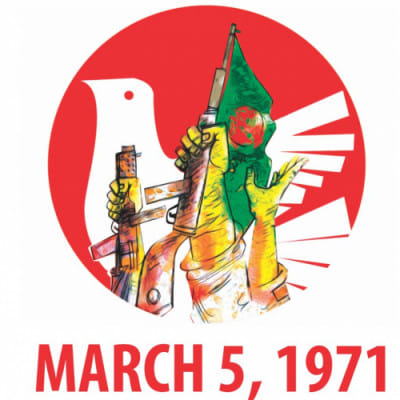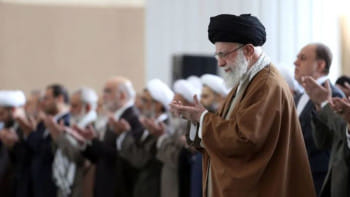March 28, 1971: Bangladesh seeks global support

After one of the deadliest nights in the country on March 25, the arrest of Bangabandhu Sheikh Mujibur Rahman, and the declaration of independence on March 26, freedom fighters kept fighting against the Pakistan army.
On this day, the curfew in Dhaka city was eased from 7:00am to 4:00pm.
Later that night, help was sought from the rest of the world through the broadcasts from Swadhin Bangla Betar Kendra in Chittagong.
Meanwhile, Pakistan navy fired shots in different areas of the port city. And in the port area, they disarmed Bangladeshi navy men and murdered them.
Also on this day, Pakistan Observer, which remained close for two days before the declaration of independence, resumed publication.
Meanwhile, American Consul General to Dhaka Archer Blood called on Washington through a telegram about observations at Dhaka, under the subject heading "Selective genocide". He reported that they are "mute and horrified by a reign of terror by the Pakistan military" in East Pakistan. Blood pointed towards surfacing evidence suggesting that Awami League supporters and Hindus were being systematically targeted by the martial law administrators. He also reported that Prof Dev, Prof Fazlul Haque, Prof Abedin, along with many DU teachers and MPA's, have been killed.
On the other hand, in the Memorandum for Dr Henry Kissinger, Situation in Pakistan, NSC official Samuel L Hoskinson told Kissinger that events in East Pakistan had taken a turn for the worse. It also acknowledged both American recognition of the "reign of terror" conducted by West Pakistan and the need to address the new policy issues that have been created as a result of the terror.
American television broadcasting centres CBS and NBC claimed that “East Pakistan Rebellion [has been] crushed”.
In Dhaka, freedom fighters and Pakistani occupational forces exchanged gunfire at Jinjira area.
Pakistan army attempted expelling all foreign journalists from Dhaka, confiscating their notes and tapes to keep the news of the genocide at bay.
But as the war deepened, Bangladesh became the focus of the world.
Source: Bangladesh Genocide Archive, The Daily Star Archive and US Department of State Archive

 For all latest news, follow The Daily Star's Google News channel.
For all latest news, follow The Daily Star's Google News channel. 





Comments